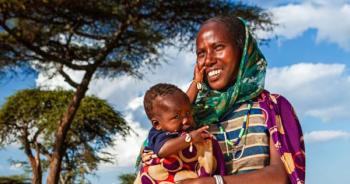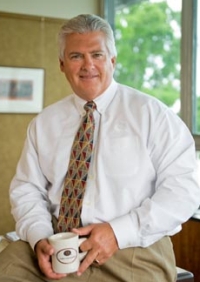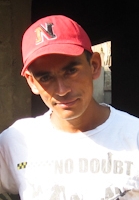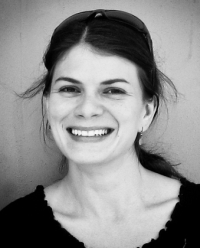by Shyla Nambiar; Published 1/13/2014 (revised 12/4/20); © 2014 Shyla Nambiar

Cervical cancer is the most prevalent form of cancer among women worldwide. While women in affluent nations are encouraged to have routine Pap smears, they are often too expensive for women in developing countries. Now, a nonprofit organization, supported by the coffee industry and appropriately named Grounds for Health (GFH), advocates an ingenious, lower-cost but effective alternative for early detection and treatment, using humble vinegar and cotton swabs.
More than 80% of the global burden of cervical cancer is found in developing nations. While this type of cancer is preventable, screening, detection, and treatment opportunities are not always available. Cervical cancer kills more women than any other form of cancer, and deaths can have far-reaching effects, as women are needed to work and take care of families. Thus, in addition to the personal loss, families and communities suffer.
Making a Difference… with Vinegar

GFH, founded in 1996, aims to change these grim circumstances. The organization was created by Daniel Cox, president of Coffee Enterprises, a coffee-testing company in Burlington, Vermont, and Dr. Francis Fote, a retired obstetrician/gynecologist. Fote accompanied Cox on a trip to Potchua, Mexico to buy coffee for Ben and Jerry’s. There they met a local doctor, Jose Valenzuela, who was concerned with the high incidence of cervical cancer in his area. Cox and Fote approached a company in California about donating diagnostic equipment, and Dr. Valenzuela was trained to operate it. For the first 4 or 5 years, they relied on the Pap smear for cancer detection. However, this method was expensive and labor-intensive, so they switched to visual inspection with acetic acid, or VIA, method.
VIA was developed by Jhpiego, an affiliate of Johns Hopkins University. By using vinegar to swab the cervix, lesions or polyps can be detected as they turn white. If they are smaller than a certain diameter, they can be treated with cryotherapy and frozen immediately. In a few days, the frozen tissue is sloughed off and expelled by the body. The VIA method is performed only on women between 30 and 50 years of age, and has a 90 to 95% success rate.
Coffee and Health
The GFH board of directors consists of representatives from the coffee industry as well as the public health and medical sectors, including doctors who are well-recognized in the field of cervical cancer. Currently over 100 coffee companies sponsor the project, and 99% of the funds are donated by the industry. Prominent names such as Green Mountain Coffee, Ben and Jerry’s, and Caribou Coffee support GFH. Cox said, “The coffee industry is incredibly generous when it comes to giving to the people that produce our livelihood.”

GFH’s intent is to partner with coffee companies, cooperatives that grow the coffee, and local healthcare organizations. It assists local communities to become self-sufficient in addressing healthcare issues. Local volunteers are designated community health promoters. Marlon Villareyna, a community health promoter from Santula, Nicaragua, said, “There have been many women who died of cancer in the community, and before we didn’t know the cause. Before this project, we knew of a woman in the community who had been diagnosed with advanced cancer. It was sad to watch her die — the severe pain — bleeding like an animal was eating her alive from within.”
In a more conservative society, one of the obstacles to screening and treatment is the reluctance to talk about private body parts, though crucial when dealing with cervical cancer. Villareyna explained, “One of the most important things is that the talks about the screening test make it possible for women to talk about their bodies. Before, the genitals were like a huge taboo — it was almost prohibitive to speak about ‘those parts.’ And at first, I was embarrassed and women were embarrassed. But after building trust, we succeed, and now we’re almost finished screening all the women. We’ve now extended the invitation to the community, and neighboring communities are now requesting the test.”
Community Impact
The international volunteers come from major US hospitals, and clinicians are registered nurses or doctors. Coffee-growing communities invite GFH to undertake a screening campaign in their locality. GFH makes a five-year commitment to them and screens twice a year. The five-year commitment ensures that the volunteers become familiar with the community and build a better relationship, while also ensuring that health programs are maintained.
Community health promoters initially mobilize the campaign to get women to the clinics, often putting a bullhorn on a truck and driving through the area to spread the word on upcoming screenings. One week before the campaign, GFH volunteers arrive at the site to train the local doctors and nurses in the VIA method. On screening day, the co-ops transport the women to the site, where they are first educated about the procedure. The entire exam itself takes only 10 to 15 minutes (more advanced cases are referred to a hospital). Women are typically waiting an hour before the screening begins in the morning, often with children in tow. Seventy-five to a hundred women are seen daily during the five-day screening period.
The impact of the screenings in the local community goes beyond the actual exam. According to Cox, “There is no doubt in my mind that we’ve not only saved some lives, but we’ve also saved a lot of agony and a lot of concern. We’ve had women that have said that not only has this changed their lives, but it’s empowered them to know more about their bodies and to be advocates for themselves.”
Volunteer Experiences
One of GFH’s many volunteers is nurse practitioner Erica Lieberman, who holds a master’s degree in nursing and specializes in women’s health care. She practices in Northampton, MA, and has worked onsite in Mexico and Nicaragua since her first trip with GFH in 2011.
Lieberman helps train local doctors and nurses in the VIA technique and cryotherapy through classes and workshops. She also works with the community health providers who educate women on cervical cancer. In addition to training, she interacts with the patients and sometimes performs exams. Ms. Lieberman finds her work with GFH rewarding. “I know I have a certain area of expertise, and I want to share that, but I feel that the healthcare providers I work with have a lot to teach me about how this will work in their communities and what are some of the barriers to getting women to care,” she said. For her, the challenge lies in reaching the 90% of women who have never been screened.

Kayla Moore, a program manager with GFH who has a background in international health, manages the Nicaraguan site. She acknowledges some of the challenges faced during screening campaigns. Coffee-growing communities are traditionally conservative cultures that are located in rural areas. Female patients often don’t have a say over their own health. Husbands have to give permission for women to be screened, and they sometimes misunderstand the importance of screening for cervical cancer. They also have reservations about male clinicians seeing their wives, a concern that is circumvented by using female providers. Transportation to screening sites, with poor conditions on local roads, can also be an obstacle. Coffee producers may distrust local health authorities, and the concept of preventive healthcare is new to many.
Through community engagement, GFH has worked to overcome some of these challenges. It has built local partnerships with healthcare providers and cooperatives and provided them with the tools to implement programs on their own. Now there is greater awareness and willingness to set up community-based health programs. In Mexico, a number of co-ops have broadened their services and offer screening for other conditions, as well as nutritional education workshops.
Positive Results
Since the inception of GFH, approximately 34,000 women have been screened. Both providers and the women who have undergone screening are enthusiastic about VIA. According to Moore, “There’s a lot of satisfaction on behalf of the providers and the women, being able to get immediate results. In addition, the ability to provide immediate treatment the same day with cryotherapy during campaigns is something the providers and women have said repeatedly is a tremendous advantage and a benefit to them.”
Because of GFH’s success, it was invited by the World Health Organization to help develop training materials for cervical cancer screening. It is also growing its global advocacy program, and Moore envisions bringing the voices of women from the rural communities to the global discussion on cervical cancer prevention.
Most coffee drinkers in developed nations, nursing the first caffeine hit of the day or ordering a latte from a barista, probably do not stop to consider the people who grow the beans. The coffee industry, though, makes a unique effort to care for the health of some of their most vulnerable workers through GFH. The organization seeks to benefit coffee-growing communities by encouraging self-reliance rather than dependence on outside assistance. As such, it gives the rural areas that help supply one of the world’s most popular drinks the opportunity to manage their own health and well-being.
Related Links
- Grounds for Health
- Jhpiego
- Not Your Average Joe: Tasting coffee with expert Dan Cox (an article about the founder of Grounds for Health)
About the Author
Shyla Nambiar is a freelance writer based in Atlanta, Georgia.
